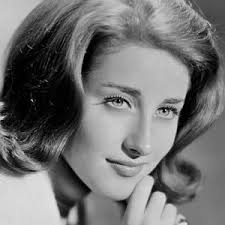 The T.A.M.I Show, the concert film pieced together from a two-night parade of pop stars at a Santa Monica theater in 1964, could be viewed as a metaphor for Lesley Gore’s life and career.
The T.A.M.I Show, the concert film pieced together from a two-night parade of pop stars at a Santa Monica theater in 1964, could be viewed as a metaphor for Lesley Gore’s life and career.
Acting as bookends of the now-legendary film are three dark and edgy titans of rock, pop and soul, Chuck Berry at the front, and James Brown and the Rolling Stones on the back. But in the middle, amid a dozen or so other less threatening musical guests, is Gore, the least threatening of them all.
For much of her career, if not her life, Lesley Gore served as the antithesis of the voracious, brooding and nihilistic rock star. She was the squeaky-clean girl next door, a pop princess so wholesome, cuddly, 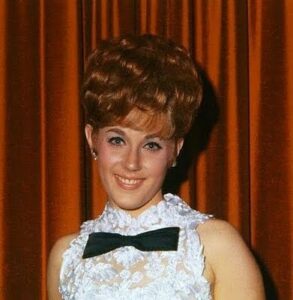 and seemingly willing-to-please that one might swear she still had her pom-poms and prom mementos tucked away in her bedroom.
and seemingly willing-to-please that one might swear she still had her pom-poms and prom mementos tucked away in her bedroom.
What’s more, at a time when women in this country were expected to be devoid of opinions, slaves to their men, and forever wear a smiling, loving face, regardless of circumstance, Gore unwittingly emerged as the embodiment of such provincial thinking.
Her early hits almost boggle the mind, especially in light of just how far women have traveled since their days atop the charts.
Her first two, for example, It’s My Party and Judy’s Turn to Cry, should now almost come with warning labels for impressionable, teenage girls. Both songs are set up as a competition for a man’s affection, both measure a young woman’s happiness by who gets the guy, and both end up with the vanquished party alone and in tears.
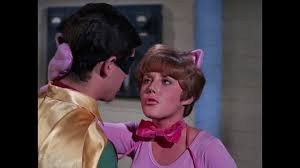 Her Maybe I Know is an almost eerie justification for staying with a man no matter how unfaithful. In it, Gore hears the whispers of others and, when she feels her tears about to fall, always turns and hides. But because she loves her cheating snake, she continues to stay with him, continues to let him philander, and continues to look the other way, asking only, “What can I do?”
Her Maybe I Know is an almost eerie justification for staying with a man no matter how unfaithful. In it, Gore hears the whispers of others and, when she feels her tears about to fall, always turns and hides. But because she loves her cheating snake, she continues to stay with him, continues to let him philander, and continues to look the other way, asking only, “What can I do?”
But the granddaddy of all Lesley Gore’s spineless anthems was her 1963 hit, That’s the Way Boys Are. The song’s lyrics about shameless male rubbernecking and (at times) actual physical abuse are almost jaw dropping by today’s standards and need little in the way of further explanation:
When I'm with my guy and he watches all the pretty girls go by.
Well I feel so hurt deep inside, I wish that I could die.
Not a word do I say.
I just look the other way,
'Cause that's the way boys are.
When he treats me rough and he acts as though he doesn't really care.
Well, I never tell him that he is so unfair.
Plus, he loves me and I know it,
But he's just afraid to show it.
'Cause that's the way boys are.
But then, out of the blue and amid all this female subservience and male abuse, from Gore’s lips spilled the words (and the song), You Don’t Own Me. And with that, our generation’s relationship with the woman would never be the same again.
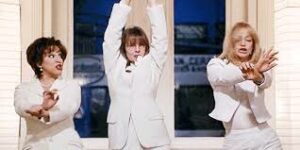 Because that dark, slightly ominous and truly remarkable little sliver of pop brilliance became the only real anthem Lesley Gore would ever record, a song – a phrase – that would in time be embraced by feminists and strong women the world over and for generations to come. And while part of the reason so many women continue to rally behind You Don’t Own Me is the greatness of the song, at least a few early on did so because of how far the woman who sang it had come to travel.
Because that dark, slightly ominous and truly remarkable little sliver of pop brilliance became the only real anthem Lesley Gore would ever record, a song – a phrase – that would in time be embraced by feminists and strong women the world over and for generations to come. And while part of the reason so many women continue to rally behind You Don’t Own Me is the greatness of the song, at least a few early on did so because of how far the woman who sang it had come to travel.
I suppose it’s only appropriate that You Don’t Own Me was the very first cut on the very first side of the singer’s second LP. Just as I suppose it’s likewise appropriate that the name of that LP was Lesley Gore Sings of Mixed Up Hearts.
Because the bitter irony of Lesley Gore was, the more our generation saw her, and the more we felt compelled to pigeonhole her, the less we actually knew her. And the more she sang of the lengths to which she was willing go to be with a man, or the more she joyfully espoused the virtues of traditional love and romance, the further from the truth we grew.
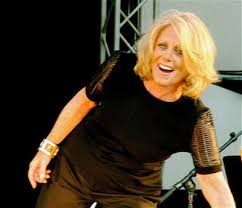 Because for three decades Lesley Gore was less an actual person than a costume she apparently donned for our benefit. Because deep down inside Lesley Gore was really always Lesley Sue Goldstein from Brooklyn, by way of Jersey. Deep down inside Lesley Gore was a complex woman and talented artist locked in a constant struggle to get her true voice heard. And deep down inside, and perhaps above it all, Lesley Gore was never the least bit interested in men.
Because for three decades Lesley Gore was less an actual person than a costume she apparently donned for our benefit. Because deep down inside Lesley Gore was really always Lesley Sue Goldstein from Brooklyn, by way of Jersey. Deep down inside Lesley Gore was a complex woman and talented artist locked in a constant struggle to get her true voice heard. And deep down inside, and perhaps above it all, Lesley Gore was never the least bit interested in men.
Though she never officially came out, it turns out at the time of her death, she’d been with her partner for 33 years, and for a few years hosted a television show on LGBT issues.
There were clues to her sexuality, of course, along the way. Gore never married, and for all we knew, even in her heyday never publicly dated. And in the early 80’s she co-wrote (with her brother Michael) a song for the hit movie Fame that was titled, perhaps tellingly, Out Here on My Own.
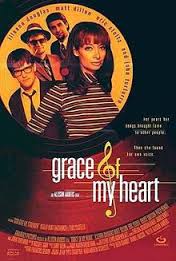 But maybe the biggest peek behind her curtain came in the 1996 film Grace of My Heart, a fictional account of the life of a thinly disguised Carole King, featuring, among others, a thinly disguised Gerry Goffin, a thinly disguised Phil Spector, and a thinly disguised Brian Wilson. In the movie, a quiet and almost painfully shy girl-next-door/pop princess from the suburbs of New York with a big, bouffant hairdo played by Bridget Fonda is revealed to be a closet lesbian. Fonda’s character was clearly a not-so-thinly disguised jab at Lesley Gore. Many of us, however, simply thought the director, much like she had with the Wilson character and his relationship with the King character, simply took some liberties in the interest of advancing her story. After all, how could Lesley Gore, of all people, be gay?
But maybe the biggest peek behind her curtain came in the 1996 film Grace of My Heart, a fictional account of the life of a thinly disguised Carole King, featuring, among others, a thinly disguised Gerry Goffin, a thinly disguised Phil Spector, and a thinly disguised Brian Wilson. In the movie, a quiet and almost painfully shy girl-next-door/pop princess from the suburbs of New York with a big, bouffant hairdo played by Bridget Fonda is revealed to be a closet lesbian. Fonda’s character was clearly a not-so-thinly disguised jab at Lesley Gore. Many of us, however, simply thought the director, much like she had with the Wilson character and his relationship with the King character, simply took some liberties in the interest of advancing her story. After all, how could Lesley Gore, of all people, be gay?
For god’s sake, she had once seduced the Boy Wonder with her feminine wiles on Batman. She’d sung love songs on the Donna Reed Show and acted with the likes of Soupy Sales. And she, with Sunshine, Lollipops and Rainbows, had given gave Marvin Hamlisch his very first hit, a song that would pop up over the years in benign little movies like Ski Party and Cloudy with a Chance of Meatballs, and one so squeaky clean, so Red State-approved, and so incapable of even trace amounts of danger, that even our parents could listen to it and not flinch.
 Lesley Gore died this week. A lifetime non-smoker, she’d apparently contracted lung cancer not too long ago, and the disease took her still a few months shy of her 69th birthday.
Lesley Gore died this week. A lifetime non-smoker, she’d apparently contracted lung cancer not too long ago, and the disease took her still a few months shy of her 69th birthday.
Yes, to some Gore is, was, and will probably always remain a musical lightweight. Heaven forbid, she was no Joni Mitchell or Carole King. She wasn't Aretha, or Dionne Warwick or Stevie Nicks. She was not Janis Joplin, or Linda Ronstadt, or even Donna Summer.
But she mattered; and, frankly, she mattered deeply. And not only because she carved out a niche for herself on the soundtrack of our lives. She mattered because as an artist and as a person she left her mark on us.
To women young and old, even as she forever remained a product of the male-dominated, post-war ‘50s, and remained socially conditioned to turn the other cheek and keep her secrets buried, she somehow emerged a voice of female independence.
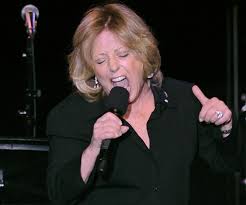 To countless sexual outsiders, she became the very definition of quiet dignity and inner strength, and remained a woman for whom the closet may have always been dark, but somehow never suffocating.
To countless sexual outsiders, she became the very definition of quiet dignity and inner strength, and remained a woman for whom the closet may have always been dark, but somehow never suffocating.
And to a generation of aging seekers, idealists and dreamers catapulted from mimeograph paper to the digital age, Lesley Gore was in many ways the poster child for a growing school of thought that true and meaningful change, social or otherwise, if not lasting acceptance, is not a lightning strike at all, but a phenomenon best achieved slowly, quietly and, above all, internally -- one heart at a time.
